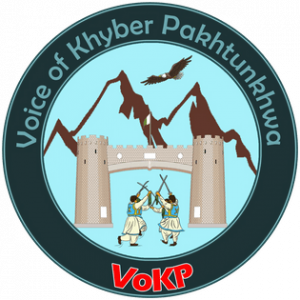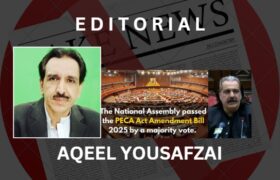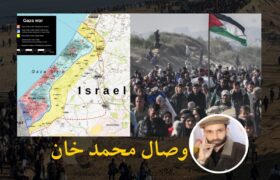Upholding Political Cohesion in the Face of Mounting instability Challenges
Laila Sadaf
Pakistan is a multi-party state with staunch ideological-political rivals, which has had a significant impact on the democratic functioning of institutions in the country since its inceptions. The presence of multiple political parties is a fundamental feature of democracy, as it allows for a diversity of opinions and viewpoints to be represented in the political process, a range of perspectives on issue are taken into consideration while making policy decisions, thus promoting political cohesion and more inclusive functioning of democratic ideals.
Ideally, multi-party systems create a system of checks and balances, as no single party can dominate the political landscape and helps to prevent the concentration of power in the hands of a single ruling party or an individual. However, existing political trade barbs and fascist tendencies of political leaders in Pakistan’s political system has led to draconian polarization of not only politics but civil society as well and catalyzed the erosion of democratic norms and institutions.
The country has remained entangled within the backwardness and totalitarian clutches. Divisive political culture, confrontational opposition, fragile parliamentary setup, selective accountability, regime change conspiracies, and extra-constitutional interventions, and lack of political maturity characterize the country’s volatile political framework. Moreover, economic bankruptcy, social unrest, industrial downfall, rampant corruption, growing unemployment, illiteracy, militancy and sectarianism, and widening ethnic divide are the outcomes of the country’s charged political history.
Furthermore, the recent Political rivalry between ruling coalition government and opposition in Pakistan has led to a highly fragmented political landscape, with multiple parties vying for power and influence while state at the verge of absolute economic meltdown. The social disruption caused by these political and economic setbacks, has further discombobulated the environment to form a stable government. Thus this constant political instability has irretrievable negative consequences for the functioning of democratic institutions in the country.
At present, it is spiraling out of control, threatening the countr’s constitutional collapse. The ruling PDM and the PTI must practice pragmatism and chivalric patriotism for the collective good of the country. Free, fair and early elections would help navigate the country through the political instability. But It needs to be tackled at the earliest hour else we may be faced with a similar situation as Sri Lanka if we fail to take timely action.
Pakistan is facing multifaceted crises and challenges right now, like corruption, inflation, soaring prices of commodities, energy shortage, lack of investment, upsurge of the US dollar, increase in oil prices, load shedding,, inability of the importers to open letters of credit (LCs) due to lack of dollars and so on. Meanwhile at this critical hour, Pakistan’s armed forces have been coping with internal and external challenges, which have been posing an existential threat to Pakistan, in order to maintain the security of the country. Undoubtedly, these forces have been fighting a different war.
To become a strong nation and state, Pakistan must address the socio-cultural issues that have distorted the country’s fabric, political and ideological tolerance social among parties and people, exclusivity, nepotism, extremist beliefs, and violence. It is crucial for the political environment to promote harmony, inclusiveness, tolerance, enlightenment, and coexistence to cultivate critical thinking and respect for opposing ideologies among future generations of Pakistan.
In addition to that, Political dialogue and consensus-building is need of the hour to foster cooperation at this crunch of national crisis and develop understanding between different political parties and stakeholders. This includes engaging in meaningful discussions by the ruling and opposition parties and sitting on the table for negotiations to address key issues and ideological differences affecting the country’s overall machinery. The mere blame game will never do any good to the country rather It will further expose the vulnerabilities of Pakistan to the enemy states, who are all geared up to exploit any available opportunity against its counterpart.
Young poet Mattie Stepanek once said, “Unity is strength. when there is teamwork and collaboration, wonderful things can be achieved.”
The proverb “Unity is strength” is commonly used and suggests that the collective power of a group is greater than that of its individual or divided members of a group. What is noteworthy about this saying is that it can be applied to the current socio-political conundrum of Pakistan. All political parties must keep their personal grudges and interest aside and identify themselves as a part of one whole system to ensure the state stability at large. It is widely acknowledged that political integration and cohesion are crucial for a government to attain social stability and harmony, strengthen national unity, promote inclusive development, establish a shared identity and direction, and prevent divisions based on differences pertaining to religion, political tilt or and other ideological divergence.
To promote political cohesion in Pakistan, it is crucial to uphold the rule of law and address socio-economic challenges. It involves ensuring the independence and impartiality of the judiciary, prosecuting corruption, and treating all individuals equally under the law irrespective of their political or social status. This will help to promote a sense of trust among government and public as well as establish the masses’ confidence over the legal system.
Beside these, addressing socio-economic challenges such as poverty, unemployment, and gender based inclusivity are also essential for promoting political cohesion. Thus implementing policies that create jobs, reduce poverty, and promote social mobility should be the end of existing political mandates. When people have access to basic needs such as food, shelter, and healthcare, they are more likely to feel a sense of belonging and connection to their society. This also helps to reduce social tensions and promote stability and provide a boosting environment for political integration.
To call spade a spade, it can be rightly said that promoting political cohesion in this chaotic state of affairs requires a multifaceted approach that includes the collective and sincere efforts of now only political elites but public as well. Moreover, by upholding the rule of law and addressing socio-economic challenges, we can create a more just and equitable society that is grounded in trust, fairness, and opportunity for all.





